In honor of David Lynch’s birthday, our staff celebrates his work, sharing our favorites from over five decades of uncompromising artistic vision.
“Life is very, very confusing, and so films should be allowed to be, too”. – David Lynch
Intro by The Angry Princess (Editor-in-Chief)
David Lynch’s work represents the perfect union of the dreamlike and the nightmarish. It is so influential and incomparable that a new advective was coined to describe his films and the films inspired by his unique artistic vision: Lynchian.
To be Lynchian is to be surreal and hypnotic; wonderfully strange and beguiling — exposing the bleakness of life while reveling in the small moments and joys that make us human.
In 1977, Lynch burst onto the scene with his debut feature film, one five years in the making, Eraserhead. This haunting expression of surreal horror would go on to become a cult classic. Kubrick has referred to it as his favorite film and Coppola showed it to the cast of Apocalypse Now.
With a vision so singular it utterly evades classification or conventional analysis, Lynch proved he was a master of showing rather than telling — fully utilizing the medium of cinema to invoke the kind of deep feelings and images that only exist in our worst nightmares.
Not only is Eraserhead a unique achievement in independent film, but it also marked the start of a career that would profoundly affect cinema and pop culture in a way few filmmakers have.
While he hasn’t made a picture since 2006’s audio-visual assault and fractured fever dream, Inland Empire (publicly stating that this marked the end of his filmmaking career), his undeniable influence continues to be felt, and his place in filmmaking history is firmly cemented. And though he’s not making feature films, he remains a prolific creator. From his home studio in the Hollywood Hills, he produces music, paints, sculpts, writes books, and makes short films and music videos.
Love him or hate him, there’s no doubt this eccentric genius has made an indelible mark on the cinematic and creative landscape. Thus, in honor of his birthday, the Morbidly Beautiful staff takes time to honor some of our favorite David Lynch masterpieces.
…
MULHOLLAND DRIVE
A tribute by Alli Hartley
In his career, David Lynch has always blended the narrative and the surreal, mixing the hyper-normal everyday world with one of unimaginable horrors and striking, otherworldly beauty. Never has the patina of normalcy been so bright, the subconscious underbelly been so dark, or the connection of the unconscious to the conscious world so incendiary as in his masterpiece, Mulholland Drive.
In an industry made of dreams and shadows, it only makes sense that Lynch’s version of the Hollywood tale is such a gorgeous nightmare.
In traditional Lynch fashion, it’s best that you go into this film cold. It’s best only to know that Naomi Watts plays Betty, a fresh-off-the bus transplant to the Big City, hoping to make it in the movies. She meets Rita, an amnesiac with only a blue key as a clue to her past. Memories and dreams and movies and performance all tumble together, as the past and present are refigured and reinvented before your eyes.
Lynch’s mastery is in the emotional resonance of the film.
You may watch Mulholland Drive a dozen times before you arrive at the meaning you’re comfortable with.
For me, it’s about identity. About how film is at once quaint, seductive, and devastating. Like so many films about Hollywood, it’s about who you wanted to be and what you lost to get there. And living with who you’ve become.
In my opinion, MULHOLLAND DRIVE is the most terrifying of Lynch’s films, not only because of the monster behind the diner, but because of that insidious, haunting thought that we are the architects of our own destruction.
THE ELEPHANT MAN
A tribute by Adela Karmen
Every so often, a story is told that reminds us of the inhumanity that lives within our society. These moments often bring about a sense of shame that we can act with such conviction in our faults especially against those faced with adversity. The life of Englishman Joseph Merrick is but one example.
Merrick was a man diseased with severe deformities, subjecting him to a sorrowful life as a freak show exhibit infamously known as The Elephant Man. His life eventually led to Dr. Frederick Treves, a person whose compassion allowed Joseph the opportunity to feel emotions he had been denied for so long: love, friendship, and peace. One film told this story that, although extremely heart wrenching, allowed Joseph Merrick to be remembered for the beautiful person he truly was.
A story that dives into the darker times of our history called for a director bold enough to commit to the closest representation of Joseph Merrick’s life, which consisted of more pain than joy.
In 1980, Joseph Merrick’s life was beautifully remembered through the eyes of director David Lynch in The Elephant Man.
Lynch came into production of the film with a grimy vision of London during the industrial revolution, accompanied by an unsettling tone and atmosphere. Committed to presenting the most realistic version of Joseph Merrick, Lynch was given permission by London Hospital to use the actual cast of Joseph Merrick to replicate prosthetics the actor John Hurt would wear in the film.
The decision to have Lynch direct was appointed by famous comedian Mel Brooks, who unknowingly was the producer of the film. Before its release, Brooks removed his producer credit from the film to avoid spectacle and confusion of the film’s genre.
Despite the uncanny touch of his work, David Lynch created a film welcomed with high praise from the mass audience as well as his Hollywood peers.
It went on to be nominated for 8 academy awards that year.
The Elephant Man is a beautiful film that evokes tears from witnessing the torment Joseph Merrick endured throughout his life to the compassion he receives from the few people he encounters shortly before his death. Merrick’s story poses as a constant reminder of how the courage from a single person to do what is humane and just beautifully impacts the life of those faced by misfortune and paves a path for others to follow.
True to his form, David Lynch presented Joseph Merrick’s life in the style he knows well; creating an unforgettable vision of how strange, unexplainable, and more often than not, unfair life can be and leaving us to reflect on how this uniquely speaks to us.
WILD AT HEART
A tribute by guest columnist, filmmaker Matthew Currie Holmes
I have always been a fan of David Lynch.
I know that sounds cliched but when I say ‘always’… but you have to understand, I mean ALWAYS. Most people I know come to David Lynch later in life; sometimes in film school, and sometimes through friends (who are probably in film school). Sometimes they accidentally watch Dune on SyFy Network. Whatever your ‘Come to David Lynch’ moment was, I’m sure we can all agree it was historic.
My Lynch moment came early. Like… super early.
I was 6 years old when The Elephant Man came out and 8 years old when I watched it for the first time on pay television. Being GenX afforded me the opportunity to watch most of David Lynch’s films as they were released. I saw Dune in the theater when I was 10 and Blue Velvet on VHS when I was 13. Then, when I was 15 years old, the greatest television program I would ever see aired for the first time, and I consumed every episode in real time.
Twin Peaks gave me the ultimate excuse to stay home on Sunday nights!
So by the time Wild at Heart came around, I was a seasoned David Lynch viewer. But, I also found I was pretty much alone.
In September 1990, I had just reenlisted back in Catholic high school. I had voluntarily transferred to a secular school the year earlier and, as it turned out, the decision to do so was fatal to my academic career… so fatal, in fact I dropped out of school entirely and worked full-time at Toys R Us.
But that was 1989! This was 1990! I didn’t want to be ‘that guy’ who dropped out of high school and worked at Toys R Us my whole life. So, I swallowed my pride and went back to Catholic High! Readjusting was hard. I had been out of practice for so long and was already way behind the 8-Ball. I didn’t have many friends when I went back, so I took solace at the cinema.
On one particularly lonely September evening, I strolled into the London Mews Galleria and saw that Wild at Heart was playing. I had been anticipating this film all year. I knew very little about it other than there was some super steamy sex scenes and the soundtrack was hotter than Georgia asphalt.
When I went to pay for my ticket, I was denied entrance due to Canada’s restrictive laws. No one under the age of 18 was permitted. Period. Undeterred, I paid to see the Michael Douglas thriller Pacific Heights and snuck into Wild at Heart.
Five minutes into the film, I was hooked. I mean, I was utterly transfixed.
Wild at Heart tells the simple story of lovers Sailor and Lula and their wild trip across America. Sailor (a pitch perfect Nic Cage) is recently paroled from prison. The love of his life Lula (the always electric Laura Dern) is there to greet him. They go to a motel, make sweet love, A LOT, see a metal band, get into a fight and decide to flee to California.
En route, Lula’s deranged mother (Oscar nominated Diane Ladd — Laura Dern’s real-life mother) hires a hit man to kill Sailor and bring back her daughter. They meet all kinds of nefarious characters (Willem Dafoe’s Bobby Peru remains one of the sleaziest villains of all time) and violence, action, comedy and nightmarish terror ensues.
At its heart, Wild at Heart is simultaneously a satire AND a reimagining of The Wizard Of Oz.
It’s a confounding movie — both utterly derivative and wholly original.
It was like David Lynch took the perfection of Wizard Of Oz and threw it in a blender just to see the colors change. And it blew my teenage mind.
I wanted to be Sailor so badly. He was a flawed character and the coolest mother fucker I had ever seen.
Catholic high school in London Ontario Canada in the late 80s/early 90s was NOT the place to embrace the strange and the avant guard. It was a place you put your head down, where you tried hard not to get your ass kicked by various members of the hockey team.
The next Monday I went back to school with a new purpose. I made friends with the two other weirdos at who had seen Wild at Heart! The three of us suddenly became members of a very special, seemingly very exclusive club. Wild at Heart was not only the catalyst that propelled those friendships, but it became a litmus test of sorts. You didn’t have to understand it. Hell, I didn’t when I first saw it.
But you had to respect its audacity and commitment of being both unapologetically endearing and bat shit crazy at the same time.
This movie about two outcasts who, against all odds, find each other’s truths and are able to make it in the end was the perfect film for a largely misunderstood, recently reformed high schooler like me.
WILD AT HEART may not be David Lynch’s best film. It may not be the one that ages as well as say, BLUE VELVET. But the impact it had on me, and the friends I made because of it, propels WILD AT HEART to the very top of the David Lynch pantheon.
LOST HIGHWAY
A tribute by Danni Darko
I vividly remember the first time I experienced a film by David Lynch. I was thirteen years old, just got home from being away for awhile, and wanted nothing else than to just dive into the movies and music that were no longer forbidden for me to consume. I had a lot of catching up to do. But a name that kept popping up on my juvenile cinephile radar was that of David Lynch.
I quickly sought out The Elephant Man followed by Blue Velvet and Wild at Heart. Eraserhead penetrated my fragile mind and needed such processing, that it drove me to ransack my friend Julia’s parents taped from television episodes on VHS of Twin Peaks. I revisited Dune, which I fondly remembered watching with my grandfather during my youth, and I was simply fucking mesmerized. All of it, put me on system overload as I gladly found an alluring escape.
Six years after my initiation with David Lynch, I found myself deeply afraid of the world and of relationships of any kind. Perhaps afraid of even myself.
Enter my extraordinary experience with Lynch’s film, Lost Highway.
After reading a novel entitled Night People from his friend and co-writer Barry Gifford (who also wrote the novel Wild at Heart), David was struck with a phrase that was within its pages: “Lost Highway….” So much so that this sparked a significant inspiration for the movie’s narrative and the characters within it. The pair began brainstorming and collaborating in 1995 after Lynch was rather crushed that Fire Walk with Me, his feature follow up to the hit television series, Twin Peaks, was not well received.
Making its North American premiere at the Sundance Film Festival in January of 1997, Lost Highway was the seventh feature from David and, to this day, remains one of the most phenomenal cinematic experiences of my life. It stars Bill Pullman, Patricia Arquette, Balthazar Getty, Robert Blake and Robert Loggia.
Lynch’s creation is this incredible neo-noir thriller expertly laced with drama and psychological terror.
Fred Madison (Pullman) is one hell of a saxophonist, has one hell of a beautiful wife, Renee (Arquette) and a swanky home in the Hollywood Hills. But their relationship has become seriously strained. Suspicion, jealousy and paranoia have dug their claws into Frank and the wounds are beginning to show. Mysterious circumstances and the sudden brutal murder of his wife infiltrate Fred’s life.
He is convicted and subsequently sent to prison where an inexplicable event occurs, shifting the course of his existence and sending the film into overdrive, if you will. Cameo performances from Henry Rollins, Marilyn Manson, Richard Pryor and Gary Busey also await those that take a trip down the dreamy, violent Lost Highway.
Set to a moody score composed by the legendary Angelo Badalamenti (Twin Peaks, Blue Velvet) and an eclectic soundtrack produced by Nine Inch Nails’, Trent Reznor, the film consumes, confounds and seduces in traditional Lynchian fashion.
But this story, above all his others, really resonates with me.
A tale of needing to be lost, processing personal traumatic episodes and then ultimately being ‘found’ again. I feel uncomfortably seen as Fred dissolves into his despair. This intricate and compelling feature film leaves loose ends — interpretation left to the viewer — but that’s just how the filmmaker likes it, with Lynch once stating on camera, in regards to the flick, “There’s still room to dream and there’s abstractions and mood and feelings and I love LOST HIGHWAY for those things.”
I sure as fuck do too, Mr. Lynch.
Over a decade after its premiere, Lost Highway finally received an official DVD release in the United States in 2008 via Universal Studios Home Entertainment. And after being nominated for Best Director three times (The Elephant Man, Blue Velvet, Mulholland Drive) and nominated once for Best Adapted Screenplay (The Elephant Man) and missing out every single time, the Academy wisely bestowed an honorary Oscar to the uncompromising auteur in October of 2019.
Check out his golden acceptance speech below. It’s literally twenty words.
David Lynch and ALL his contributions, have continued to be a source of inspiration for me. His matter-of-fact nature, his undeniable artistic merits, his profound sense of being true to a greater purpose and, in effect being an enlightened, productive human being is fucking awe-inspiring and I hope his flame continues to burn bright for ages. Happy Birthday, Mr. Lynch.
“There’s an ocean of pure, vibrant consciousness, inside each one of us.” – David Lynch
THE MUSIC OF DAVID LYNCH
A tribute by Kirby Kellogg
It shouldn’t be surprising to find out that David Lynch, amidst his sea of other projects, has also taken the time to bury himself in the music scene, releasing his own brand of arthouse jazz and blues while helping to produce music and music videos for artists ranging from rock crooner Chris Isaak to industrial rock titans Nine Inch Nails.
I’ve already reviewed my favorite of Lynch’s musical pursuits — his lyric writing and production for Julee Cruise’s first album Floating Into The Night — but his roots in music branch out far beyond the trees of Twin Peaks.
I’ve listened through most of Lynch’s solo work — the albums Crazy Clown Time (2011) and The Big Dream (2013) — and his collaboration with Angelo Badalamenti Thought Gang (2018). They’re all very ambitious projects with very vivid lyricism. The music itself isn’t the best, I will readily admit that. Lynch is a great artist, but his musical skills leave something to be desired.
Still, his albums carry that highbrow Lynchian obscurity that makes him so interesting in the first place.
And they are absolutely worth giving at least a listen to for any Lynch fan wanting to branch out past his films and television work.
Personally, I like Lynch’s music best when he’s building upon the works of others. Whether he’s exhibiting old stalwarts and new upstarts at the Roadhouse (see Twin Peaks: The Return), remixing music from artists like Duran Duran and Zola Jesus, or helping relative unknowns get a foothold in what can be a murky industry.
What he did once for Julee Cruise, he’s still doing for artists like dance performer Chrysta Bell (who played FBI agent Tammy Preston in Return) and singer-songwriter Ariana Delawari.
In my opinion, Lynch’s music operates the same way as his films — he’s not the be all end all that turns his work into classics. He’s a large cog in a machine who functions best when turning in unison with all the cogs around him.
His work is so amazing not just because of him, but because of the people he attracts —those who’re willing to dive into the strange realms he wades in while not losing their own sparks.
TWIN PEAKS: THE RETURN
A tribute by Jamie Marino
I could rave for hours about how brilliant this particular season of Twin Peaks is. But words are my enemy, because the best ones elude me. The first time I saw Twin Peaks: The Return, with its familiar and dreamy title theme, I broke down in tears because it brought me so much comfort and warmth. I was home. To know there was new Twin Peaks material out there made me feel like mystical angels were surrounding me again.
Showtime gave David Lynch complete creative control over the eighteen new episodes. Regardless of how the ratings were, it’s because of Showtime that we can now marvel at these eighteen hours of the greatest television in broadcast history. There is no exaggeration in that statement.
The Return is raw genius.
It’s exhilarating to experience a master filmmaker express himself and weave his tale with complete confidence and with no safety net. Lynch knew exactly what he wanted, and nobody could convince him or force him to do otherwise.
Granted, the series is an incomprehensible riddle. But that’s where the Lynchian elegance and magic are. It is very different from the ABC network show of the 90s, and I think a lot of people weren’t ready for unfiltered David Lynch. I wasn’t bothered at all by the unnaturally long takes, extreme violence, and impressionistic flourishes.
I surrendered myself to David Lynch. I didn’t care how difficult it was to understand, I just jumped onboard and let him take me wherever he wanted. Smooth, cool, frightening, moving, and delicious.
Twin Peaks: The Return is the best work of his career.
TWIN PEAKS: FIRE WALK WITH ME
A tribute by Jamie Alvey
Upon its initial release, Twin Peaks: Fire Walk with Me was one of those films that the world wasn’t quite ready for. The film received negative reviews and was a box office failure. Over the years, viewers have been kinder to Fire Walk with Me and see it as one of Lynch’s more brilliant works. It’s a piece that definitely deserves reassessment and analysis.
Fire Walk with Me eschews much of the quirky charm of Twin Peaks, but one must remember that Fire Walk with Me is Laura Palmer’s story and not Dale Cooper’s. The change in tone is appropriate given that Laura is the centerpiece and no longer just the girl found dead wrapped in plastic who lived a chaotic double life.
Fire Walk with Me breathes life into Laura Palmer and gives much needed insight into her final day. Laura becomes flesh and bone to the audience, she’s not just a homecoming portrait or a grainy video on a television screen. She is alive and painfully so. Twin Peaks only scrapes the surface of her turmoil, while Fire Walk with Me forces the viewer to come face to face with Laura Palmer’s traumatic end.
Lynch portrays Laura with love and care.
It’s a bold move to center a character, who the audience knows is fated to die and yet still make the viewer wish it were not coming. He expands upon Laura Palmer’s mythology, giving her her own narrative instead of leaving her as a martyred figurehead for the series.
By the end of Fire Walk with Me, we know the heartbreaking story of Laura Palmer’s troubled past up to her miserable death. Lynch doesn’t shy away from the unsavory parts of her life and instead approaches them with empathy.
Laura Palmer is a flawed character but we love her, just the same.
Lynch unapologetically shows Laura as a young girl caught up in a flurry of violent sexual abuse at the hands of her father. Laura will do anything to escape, no matter how horribly dangerous it may be.
We witness Laura as both the girl who habitually snorts cocaine/partakes in illicit underage sex and as the girl who is a caring human being who so desperately loves her friends, especially Donna. Laura loves Donna so much that she is reluctant to allow her fully into her world and thus tries to protect Donna from the darker half. Donna represents all the good that Laura has in her. Their friendship is one of the few safe spots for Laura in her life.
When Laura dies, we’re left feeling gutted despite knowing it was coming.
Lynch unflinchingly shows her death, making it more real than it was in the series. We have followed Laura in her last days, and we see her through to the end of her life and to the hereafter in the Black Lodge.
Sheryl Lee’s performance is intense and immersive, playing both Laura (and Laura’s look-a-like cousin Maddy on the show). The last ten minutes of Lee’s performance is a work of art. I am still haunted by her smile after Laura’s death.
Lynch’s masterful writing and eye for memorable visuals pair seamlessly with Lee’s acting ability, especially so in Laura’s final moments. Lynch and Lee seek to disturb us, to give us a taste of the fright that Laura has felt all her life — and especially at the time of her death.
I can say that since my first viewing of Fire Walk with Me, it is a film that I carry with me to do this day.
It is something that sticks in my psyche, burrowing in. I am often dumbfounded as to how anyone could have failed to see the brilliance of this brutal and uncompromising masterpiece.
Perhaps the original viewers of FIRE WALK WITH ME wanted something pretty and consolatory, something with the original charm of the series. Instead what Lynch gave them was the burning crimson rush of sorrow and pain. The title in itself is an invitation to become embroiled in the flaming ruins of the life (and death) of Laura Palmer.
BLUE VELVET
A tribute by Jerry Smith
1986’s Blue Velvet isn’t my favorite David Lynch film. It isn’t even my 2nd favorite film by the legendary auteur. What Blue Velvet is though, is a film I consider to be Lynch’s masterpiece. It’s the greatest example of the ‘beautiful’ and the ‘fractured’, juxtaposed so effortlessly in the filmmaker’s work.
Blue Velvet tells the story of a college student returning home to the white picket fence-filled neighborhood he grew up in, to see to his father after a heart-attack. It’s one that begins with a calm environment, until that serene life is challenged by the finding of a severed ear.
Kyle MacLachlan’s Jeffrey puts himself into a world below the surface of the Americana life he’s known prior to the finding. Soon, he comes into contact with characters only Lynch could give us, with Dorothy (Isabella Rossellini), a lounge singer caught up in the web of one of cinema’s greatest antagonists of all time, Frank Booth (Dennis Hopper). Booth inhales gases, writes poetry, speaks in cryptic statements and adores Pabst Blue Ribbon beer (It is pretty good, right?!).
There’s such a jazz-infused, violent tone to Blue Velvet — one that makes it, as a viewer, impossible to turn away from.
Lynch blends a sly bit of humor with some very intense sequences — including heads being shot and TVs being destroyed. He also provides an enthralling look at the relationship between sex and violence.
The deeper Jeffrey goes trying to solve the mystery of where the ear came from and who it belonged to, the more the calm, happy environment is peeled back — exposing a very dark side of the world we live in. We begin to wonder if Jeffrey can even get out of it alive, let alone solve the mystery of the severed ear.
Like most of Lynch’s films, Blue Velvet is filled to the brim with some hellish and hilarious suporting characters right out of weirdsville, including Dean Stockwell (“Here’s to your fuck, Frank”), Brad Dourif, Isabella Rossellini and Laura Dern as spirited yet naïve high schooler sweet on Jeffrey.
Each performance is top notch and helps bring Lynch’s gorgeous yet ugly vision of small town America to life.
BLUE VELVET is no TWIN PEAKS. But there’s a familiarity to the film that feels like the latter could have been an extension of the former, providing a connective thread between the two works. A great example of why Lynch is a legend, BLUE VELVET is a downward spiral of weird and wonderful, all rolled into one of the most entertaining films of all time.
THE SHORT FILMS OF DAVID LYNCH
A tribute by The Angry Princess
When the idea for this article came up, I thought I might want to cover Lynch’s feature debut Eraserhead. But what I could I say about his hypnagogic oeuvre that hasn’t already been said? Besides, as brilliant as Eraserhead is, I wanted to explore Lynch’s craft beyond his signature works of film and television.
Lynch made Eraserhead when he was 30 years old. Now celebrating his 75th birthday, he’s gifted the world with an impressive body of work that extends far beyond his most celebrated achievements. Among his lesser known creations is an impressive collection of short films that are essential viewing for any serious Devotee of David.
Eraserhead may have been Lynch’s first ‘feature film’, but his first film was a short called Six Figures Getting Sick.
This one-minute short, made in 1967 during a semester at the Pennsylvania Academy of the Fine Arts, represents quintessential Lynchian filmmaking before such a term was even part of the lexicon, and it laid the foundation for the years of uncommon vision that would follow.
Devoid of plot but drenched in stylistic mood and atmosphere, Lynch loops a painting he made of six abstract figures and accompanies the mesmerizing visuals with the unsettling sounds of sirens wailing. In the film, the six figures all appear to be in pain, as their organs are slowly revealed and their stomachs fill with blood. As the blood travels up their bodies, it causes them to vomit. Over and over, this same macabre and grotesque display plays on repeat. It’s deceptively simple and yet profoundly affecting. This short is available on “The Short Films of David Lynch” DVD collection, or you can watch it on YouTube.
Lynch’s next film was an extended 35-minute short funded by The American Film Institute called The Grandmother.
Without a single line of actual dialogue, this live action/animation hybrid is absolutely haunting. It’s a mournful tale about a young boy who suffers abuse and neglect at the hands of his cruel father and self absorbed mother. Lonely and desperate for affection, he grows his own grandmother from magical seeds he finds. Rife with symbolism and visual metaphor, the film combines striking visuals with disorienting sounds to immerse the viewer in the otherworldly story of connection and isolation, love and loss, beauty and horror. Watch the short on YouTube or in “The Short Films of David Lynch” DVD collection.
If you’ve seen Lynch’s last feature, Inland Empire, you’ll already be familiar with Rabbits.
Some of the most terrifying sequences in the film included clips from this strange but utterly hypnotizing web-based project. Rabbits is a series of experimental horror-comedy shorts starring Scott Coffey, Laura Elena Harring and Naomi Watts as three humanoid rabbits stuck in a set reminiscent of a 1950s sitcom living room. They live in a place Lynch describes as a “nameless city deluged by continuous rain” where they live “with a fearful mystery”.
Cast in shadows, the characters exchange lines of cryptic dialogue, occasionally accompanied by an awkwardly timed laugh track that results in audience disorientation. Steeped in the director’s signature atmosphere, the combination of creepy visuals — human actors wearing expressionless rabbit heads — and an ominous score by frequent Lynch collaborator Angela Badalamenti, combine to create an overwhelming sense of unease.
Though, on the surface, its meaning appears incoherent, it all feels startlingly familiar. Both purposeless yet infused with meaning, it’s perhaps a commentary on how pointless our lives are, which makes it all the more frightening.
Lynch shot Rabbits in 2002 on digital video. He shot it at night, on a set built in his backyard, using cast members from his critically acclaimed film Mulholland Drive (which itself began as a prospective television series). He first aired the series on his website, making him one of the artistic and technical pioneers of the now popular web series form.
The Rabbits series can be watched in full on YouTube. Watch it and get a sense of why the psychologists at the University of British Columbia used it as a way of inducing a sense of existential crisis in their research subjects.
…


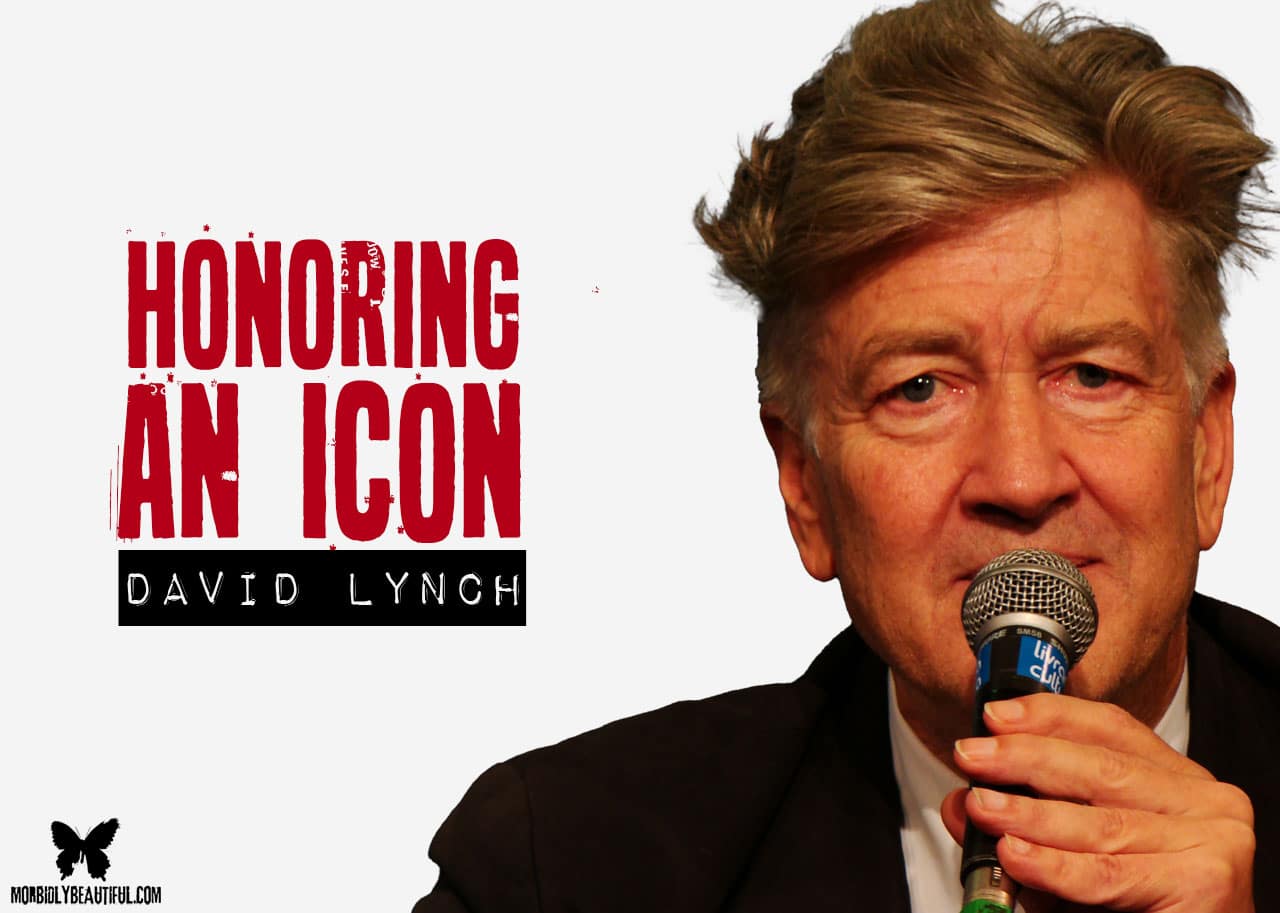
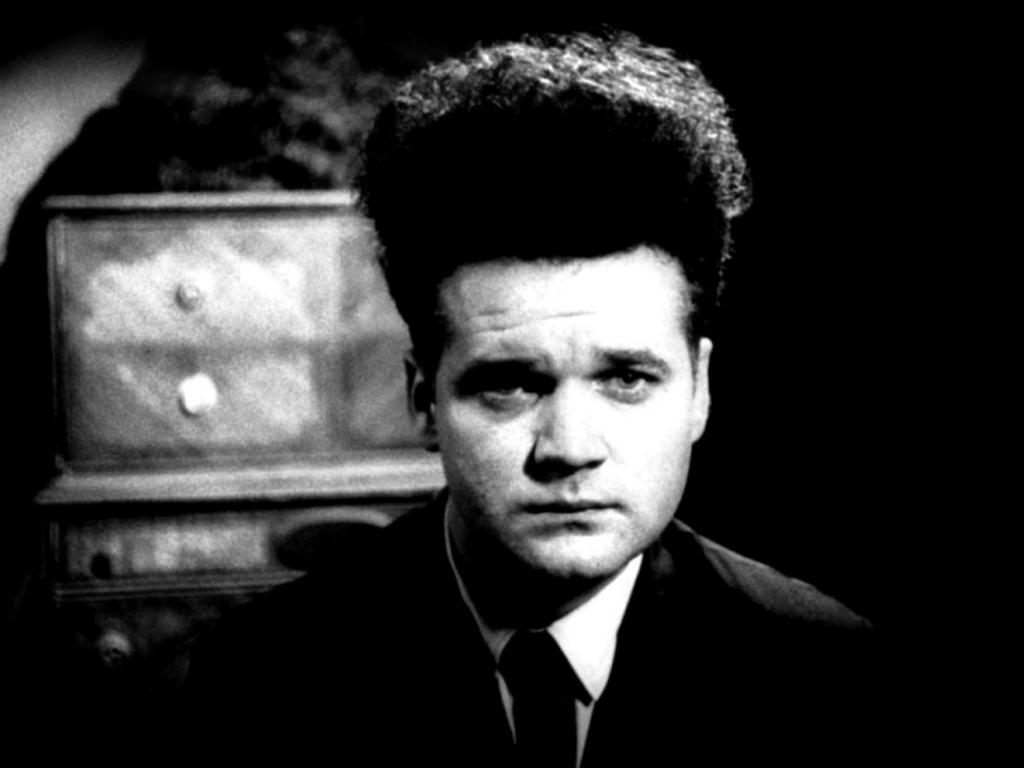
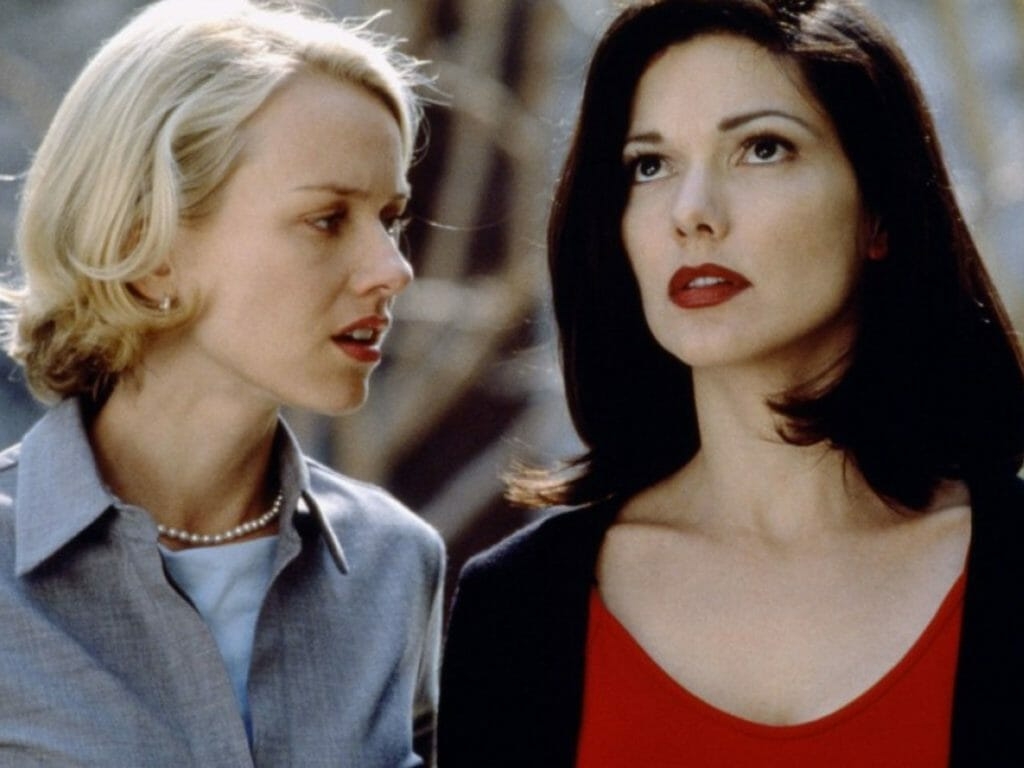
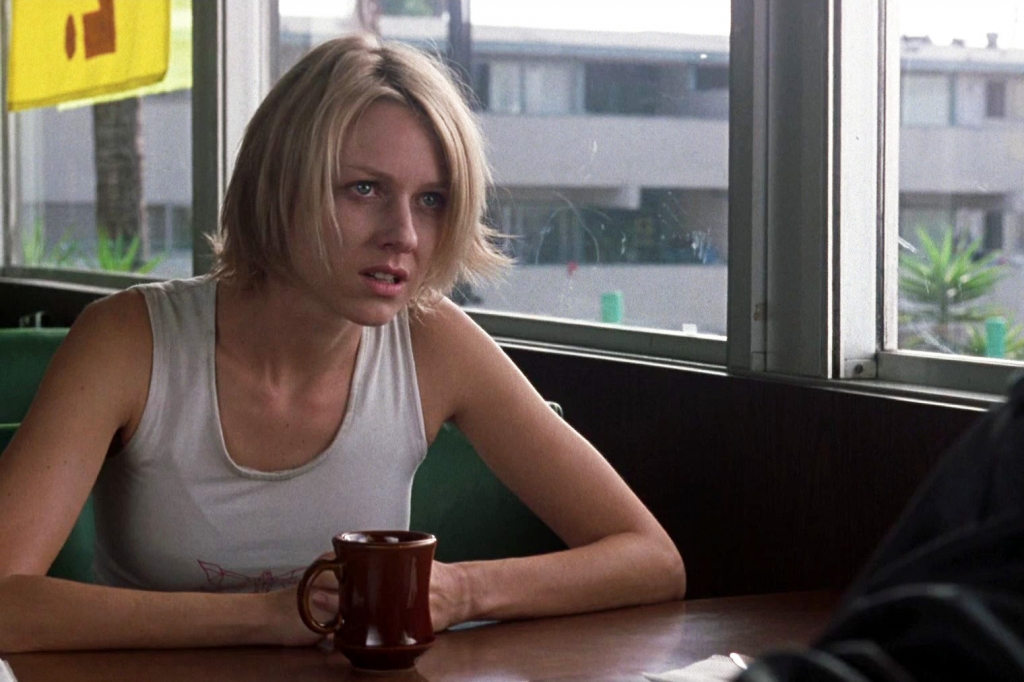
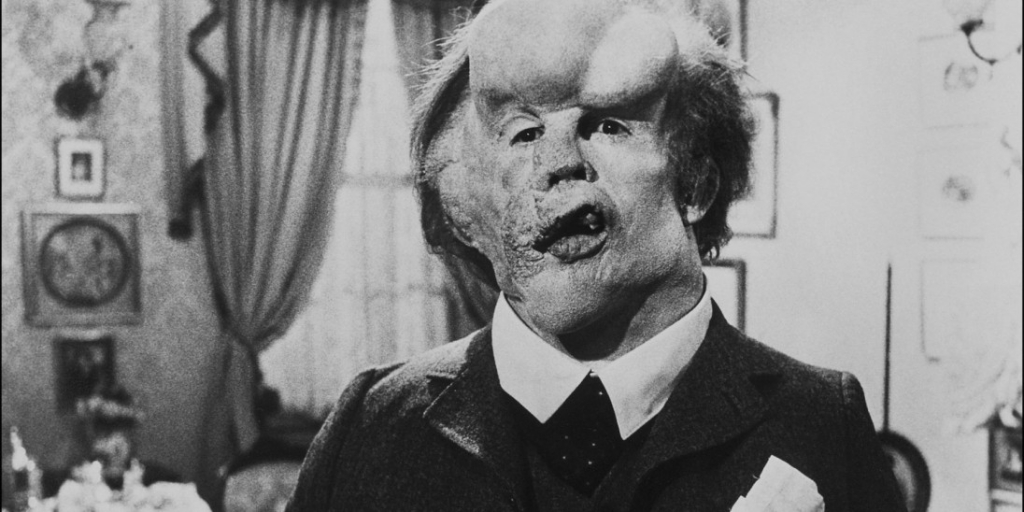
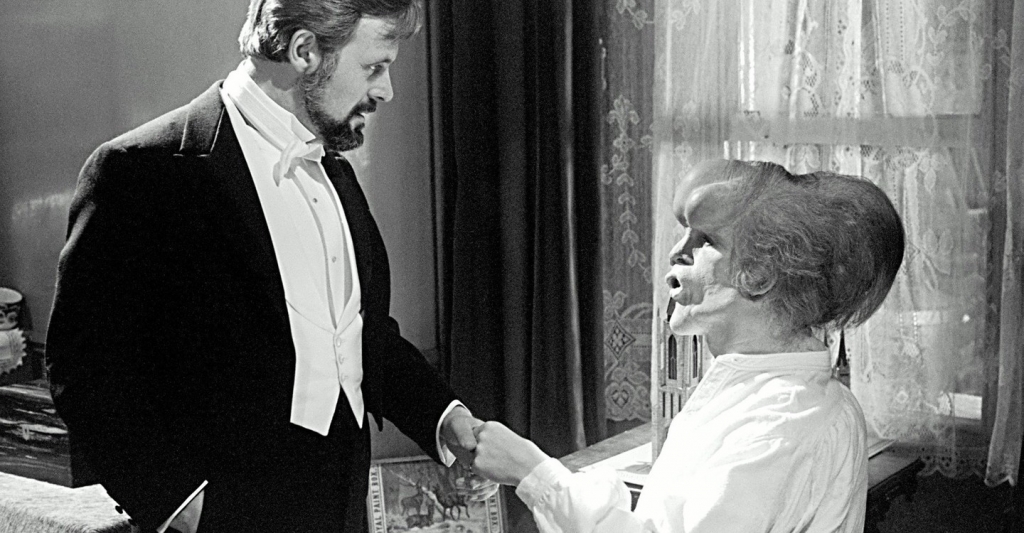
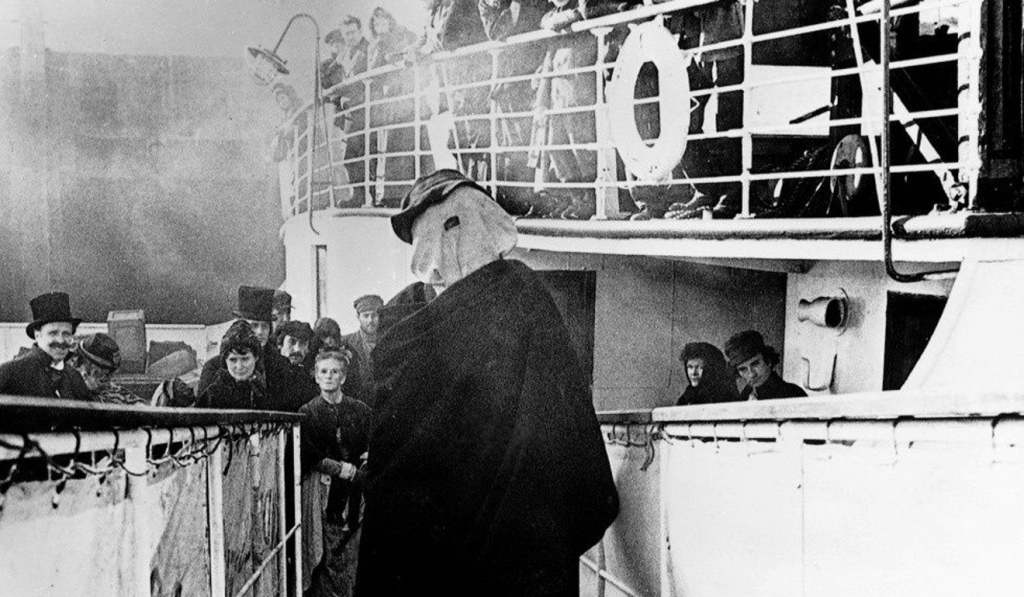
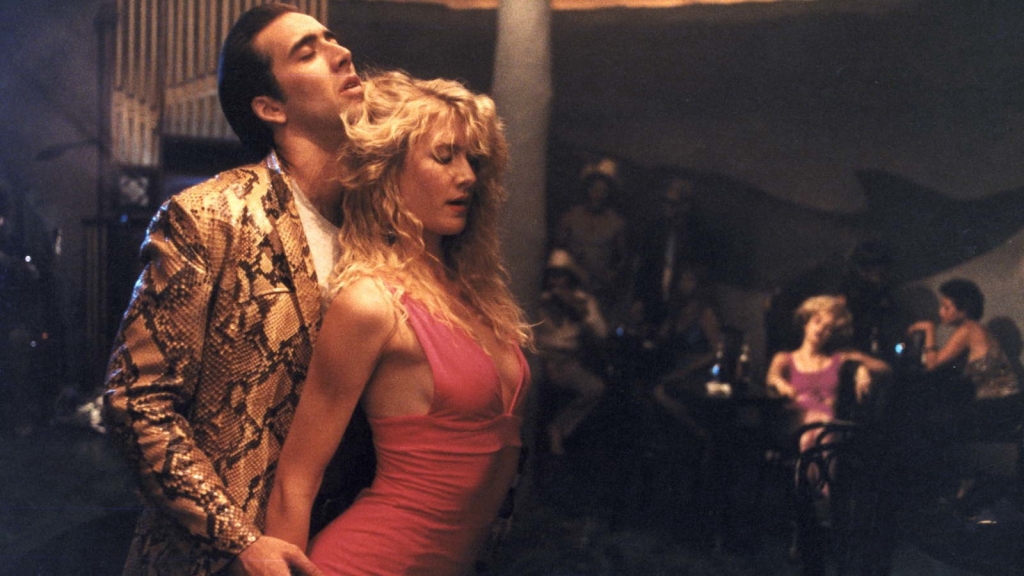
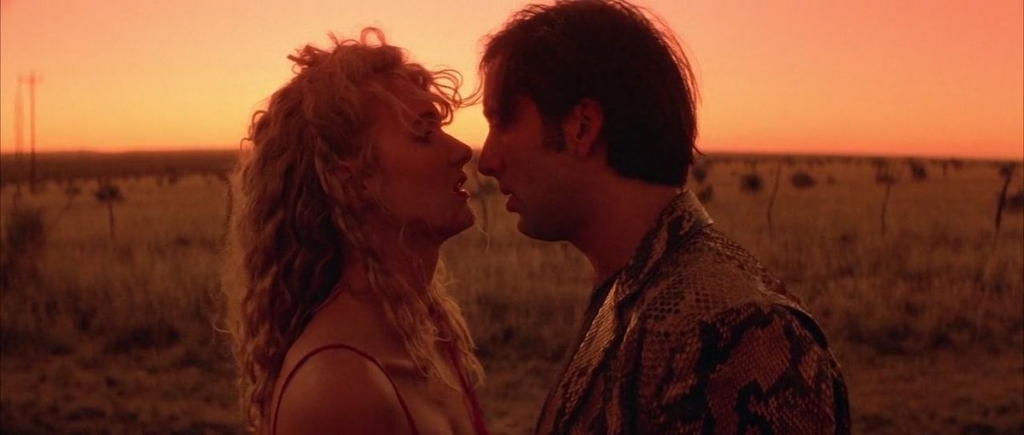
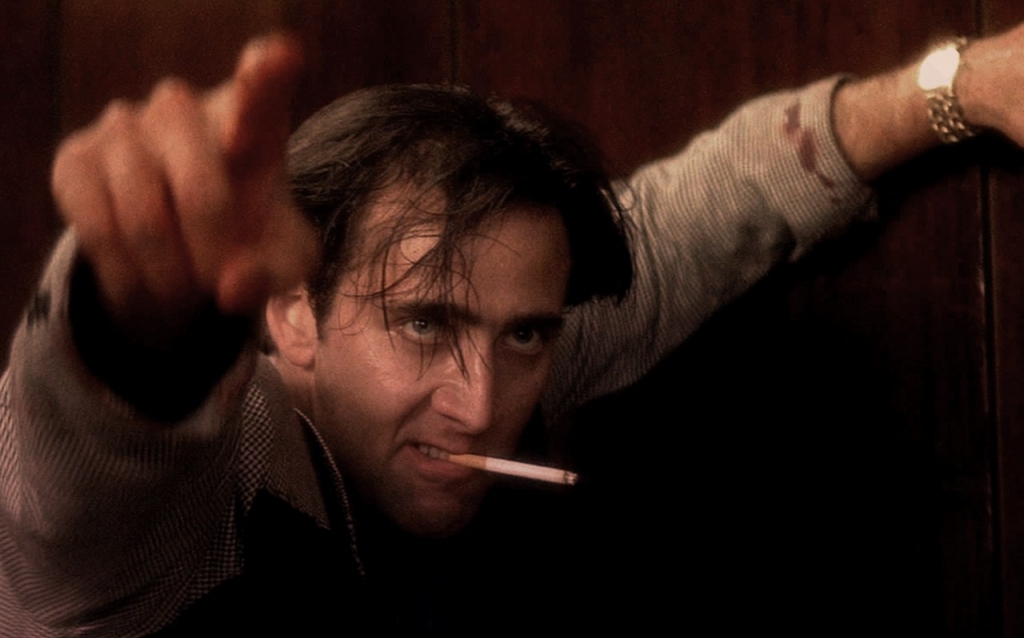
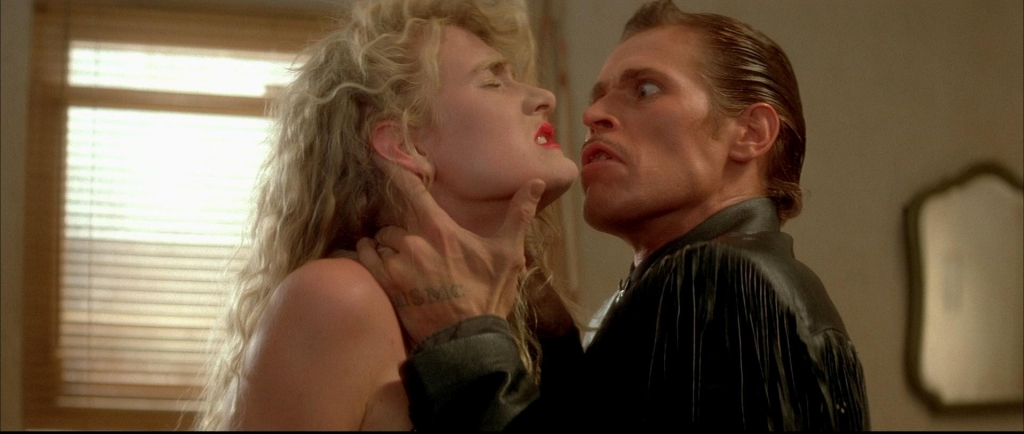
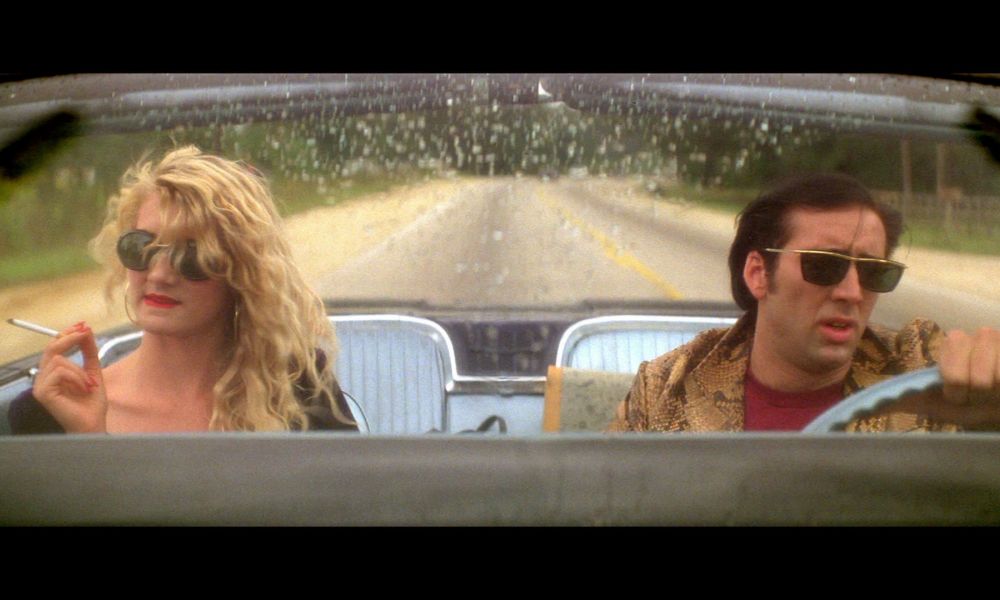



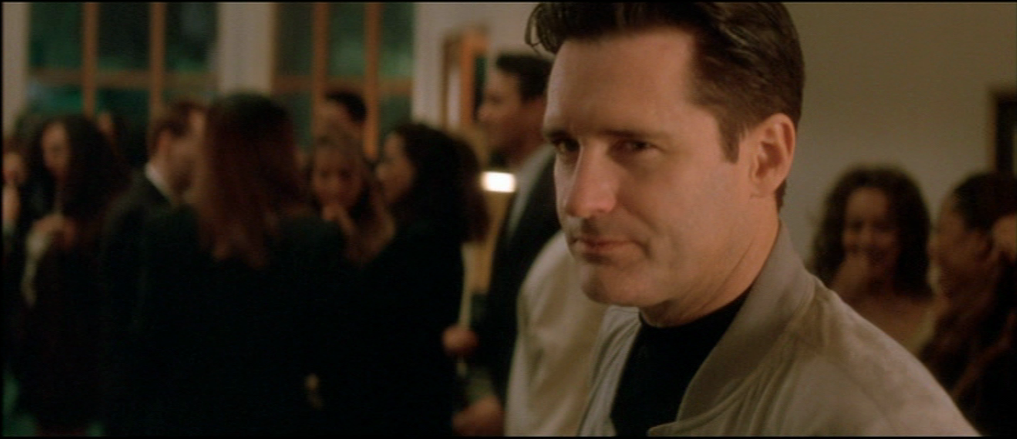

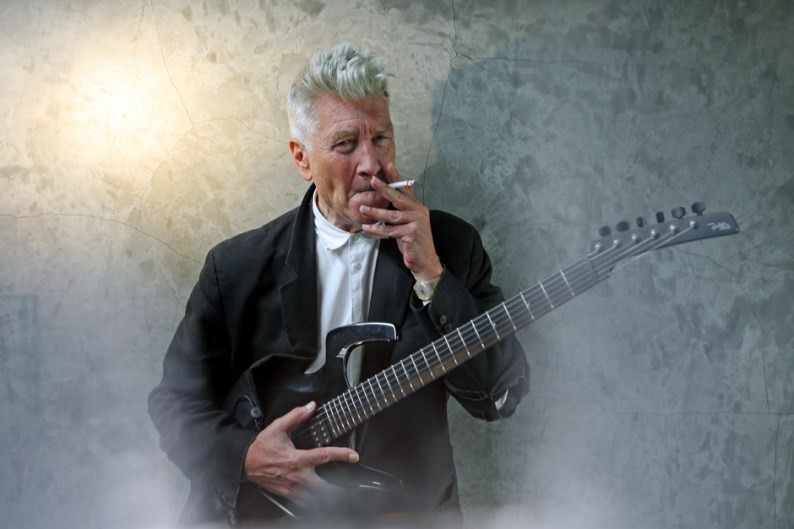
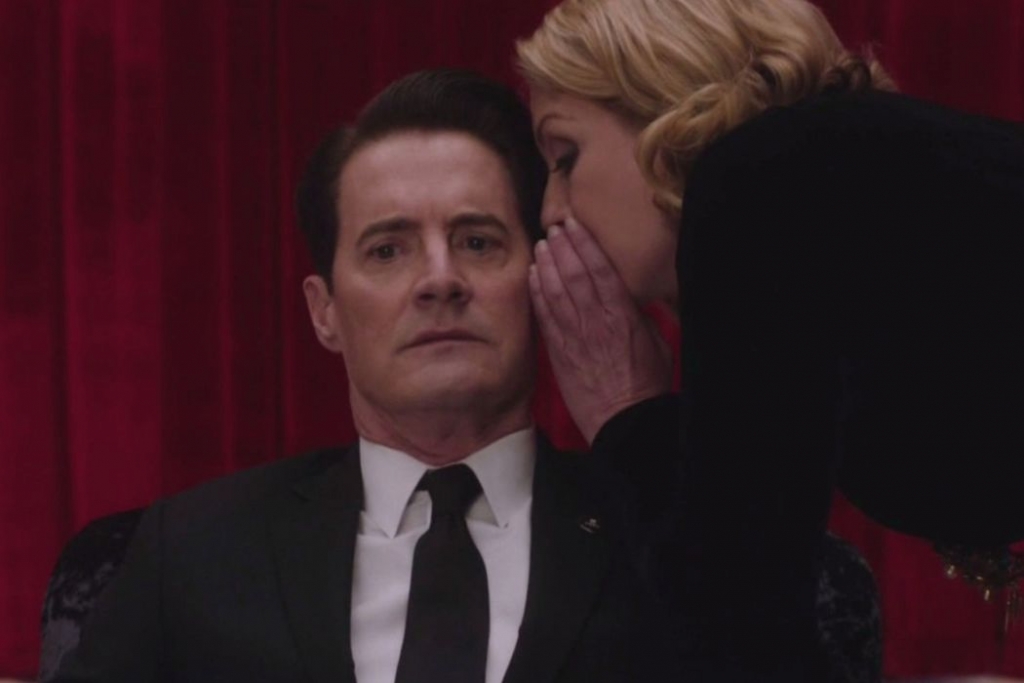
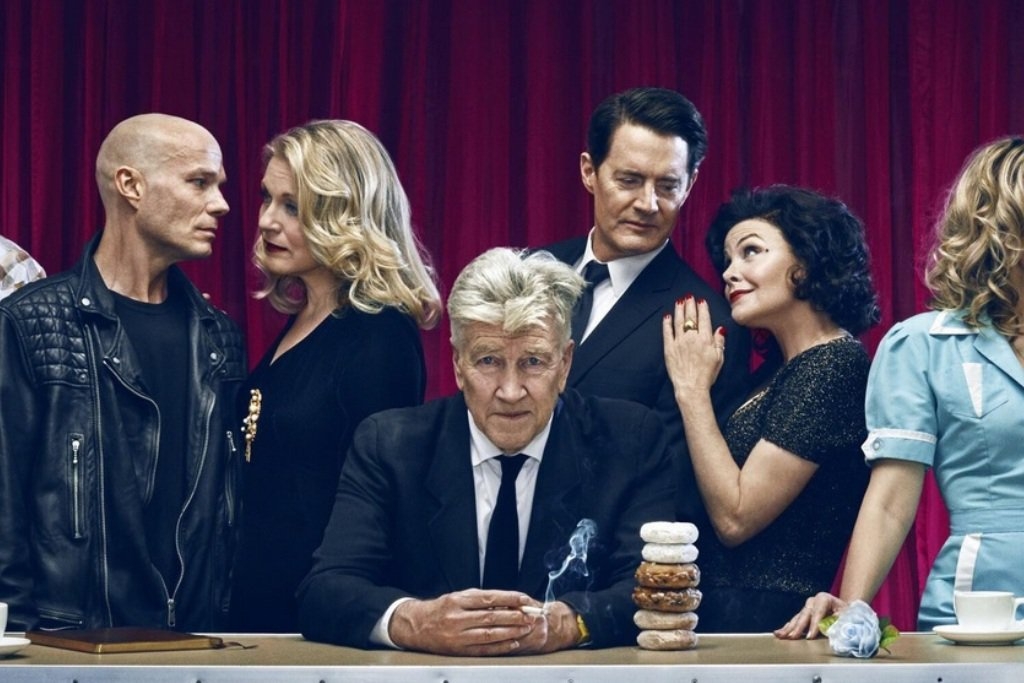
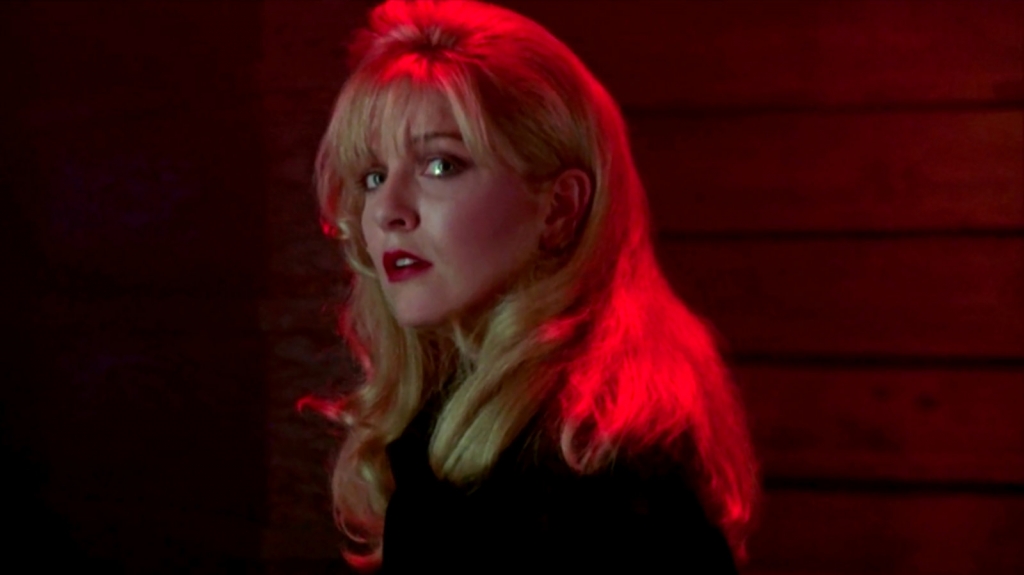
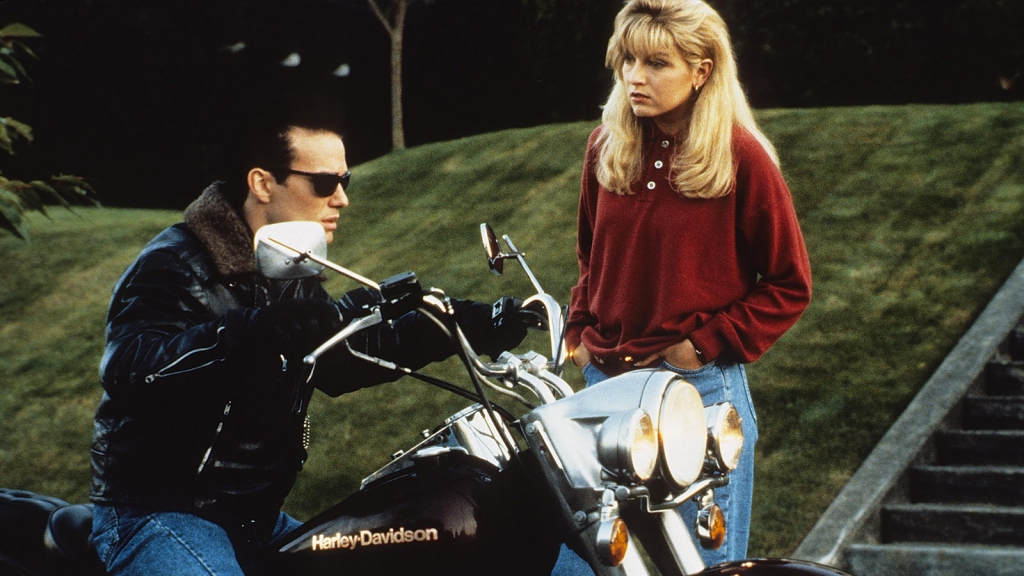
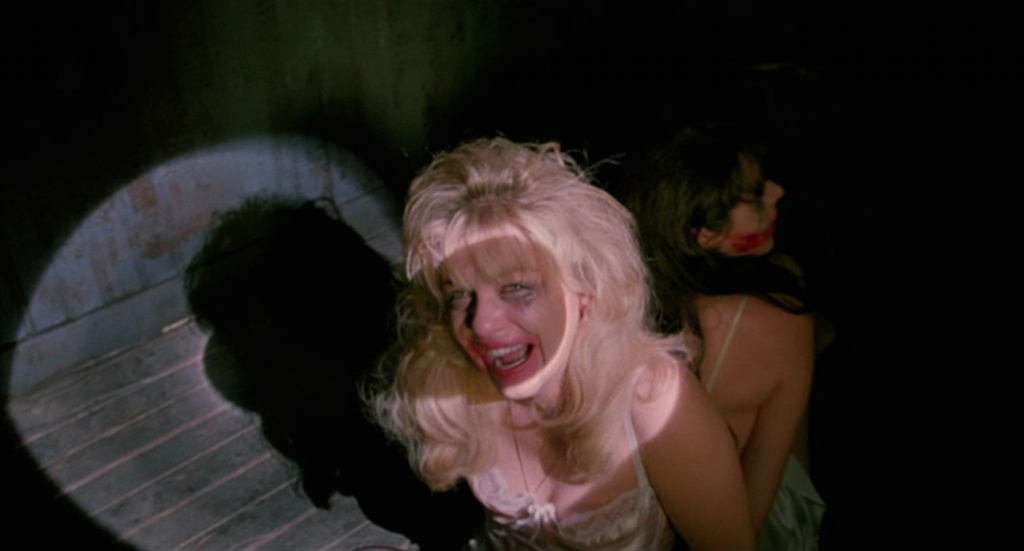
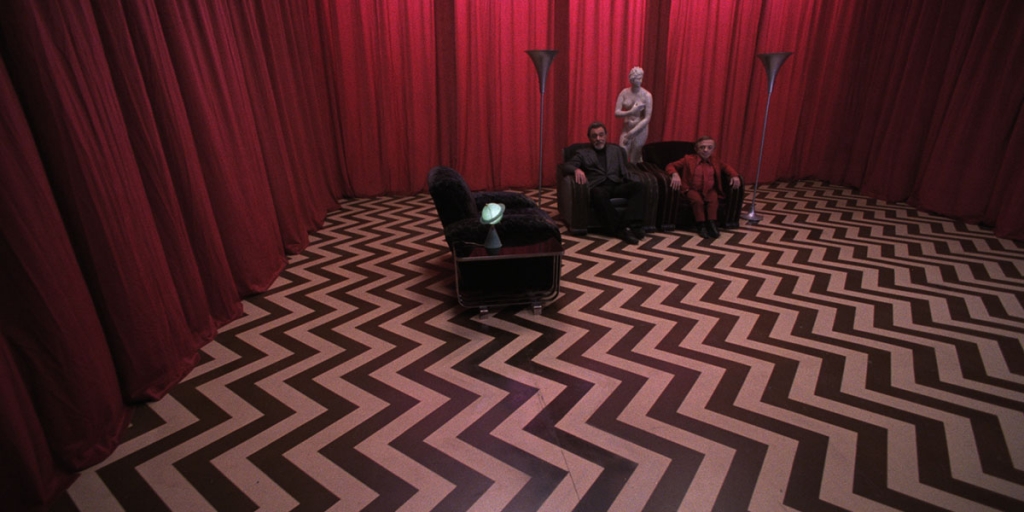
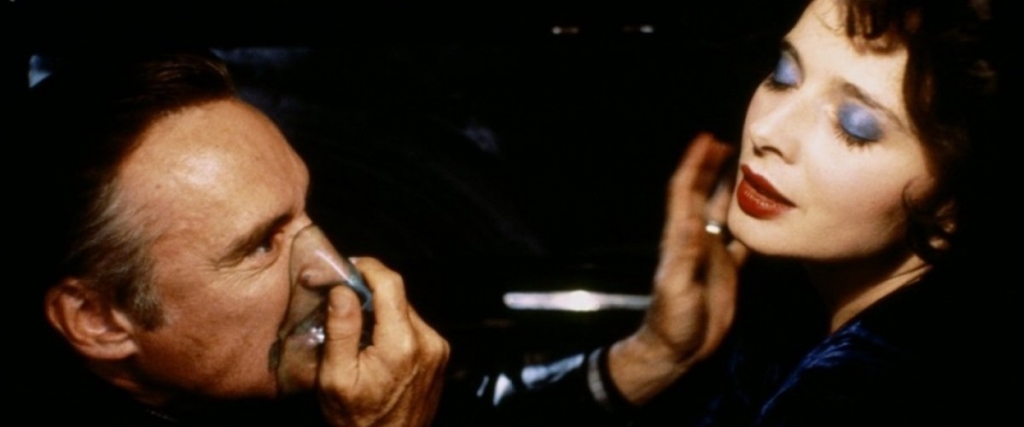
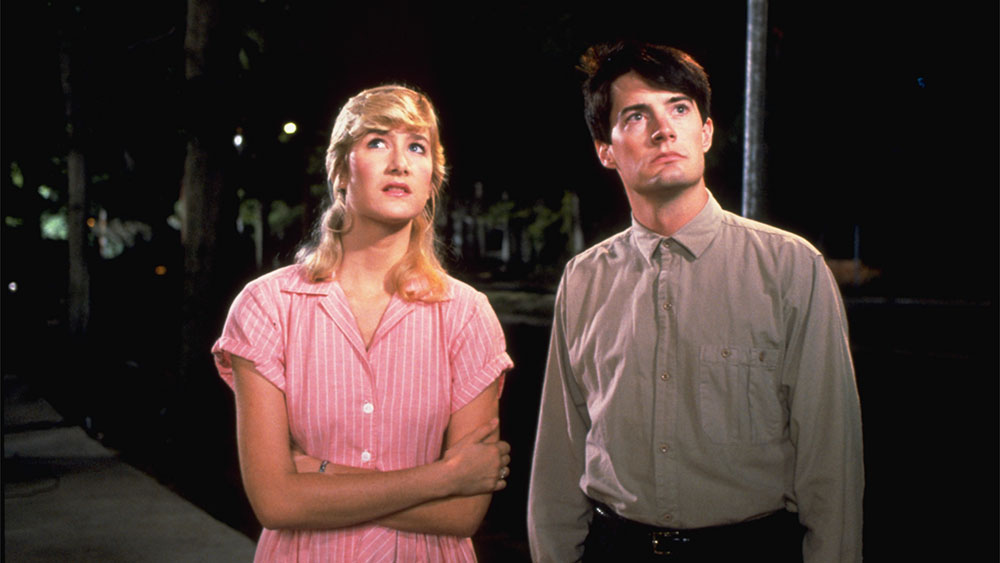
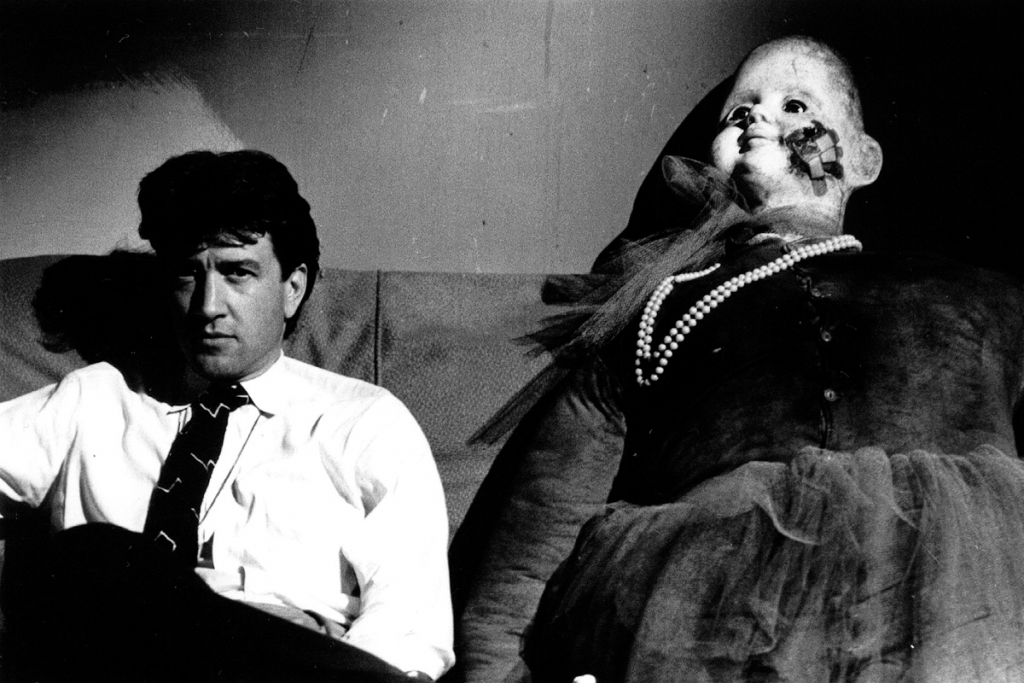

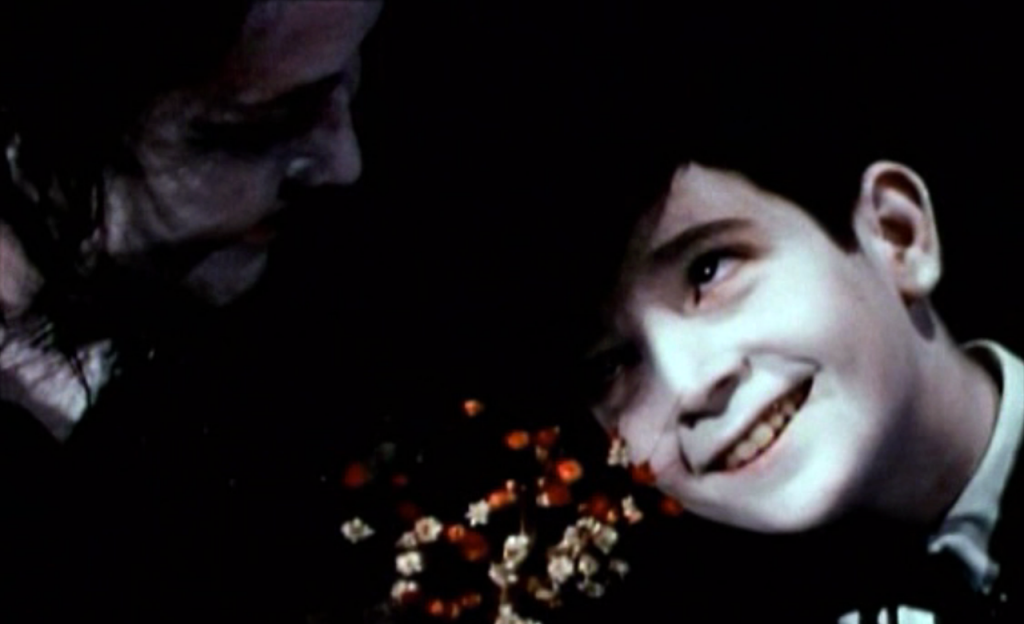
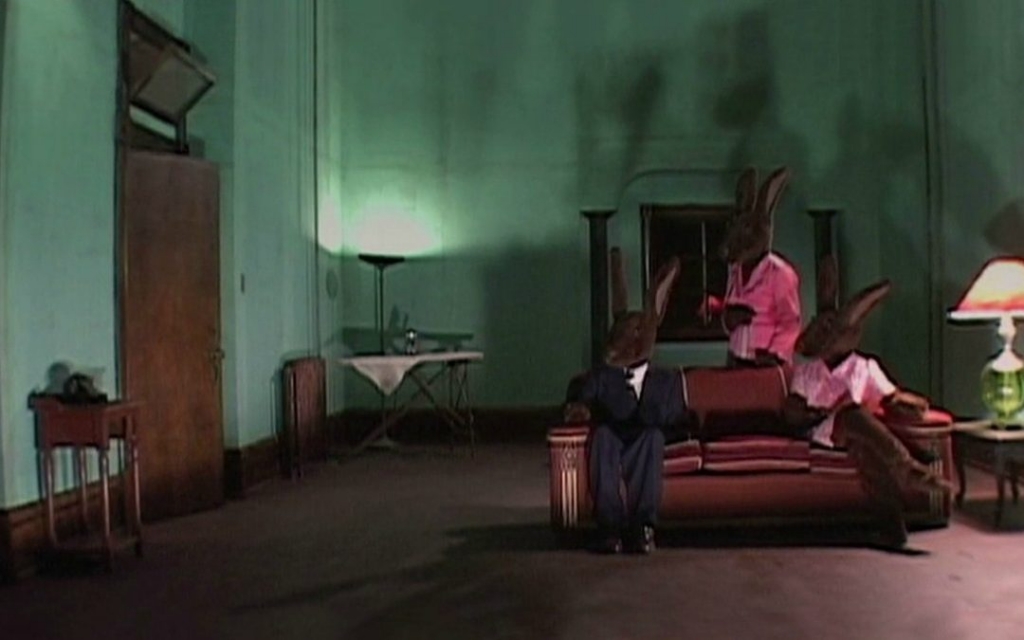
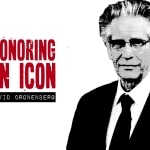

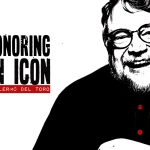
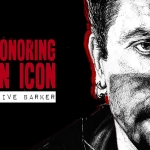


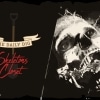








2 Comments
2 Records
Rob_ wrote:
Great Lynch blog.
Thanks